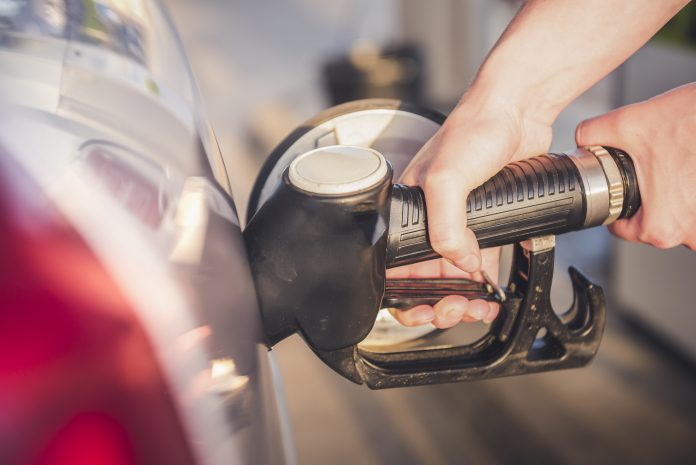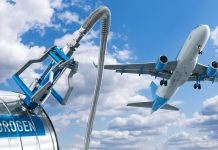Kathy Peach, Director at Nesta’s Centre for Collective Intelligence Design and Professor Thomas Chesney, The University of Nottingham, examines how the current fuel crisis – and any future ones – could be prevented with the use of collective intelligence
Over the past month, the UK has been thrown into a state of panic amid a national fuel crisis, with no shortage of accusations of who to blame and reasons why this happened. As a result, we’ve seen long queues, long hunts for supplies fights at petrol stations and people even filling up plastic bags with fuel. Experts and politicians were calling for calm, yet people were still rushing to petrol pumps and panic buying.
And, Business Secretary Kwasi Kwarteng warned that he is “not guaranteeing anything” about whether it will impact Christmas.
Could this crisis have been prevented? How do we stop this from happening again?
Collective intelligence (CI) could hold the answer. At its simplest, CI is the enhanced capacity that is created when people work together, often with the help of technology, to mobilise a wider range of information, ideas and insights. It emerges when these contributions combined become more than the sum of their parts and can be utilised for purposes ranging from learning and innovation to decision-making.
This year, Nesta’s Centre for Collective Intelligence Design’s Grant Scheme funded an experiment by The University of Nottingham which aimed to understand collective behaviour during resource scarcity and how it can be influenced. It asked: how do groups make decisions to share limited resources among themselves, and how does behaviour spread across social groups?
The team tested different levels of social connectivity and communication within and between overlapping social groups on an economics experiment platform. Participants were split into groups and tasked with a resource dilemma – they could individually claim from a common resource, but risked receiving nothing if their collective claims exceeded a threshold. The levels of communication and connectivity between groups were altered to see how this affected coordination.
It found that different conditions influenced the ability of participants to manage their common resources without exceeding the threshold. Communication (strongly) and connectivity (modestly) enhanced sustainable resource use, and that these two factors mutually reinforce one another.
So how does this apply to the current fuel cisis?
There are some differences. Firstly, people purchasing petrol aren’t likely to consider themselves as part of a social group that buys from that petrol station, though they may see themselves as part of a community of car drivers. There also tends to be multiple retailers in our local area to choose from, so we’re unlikely to be part of a community that visits one petrol station alone.
All else being equal, if people could organise themselves better and share their knowledge within these ‘communities’, it allows for a fairer distribution of a resource and avoids behaviours like panic buying, which makes shortages or disruptions to supply worse. We’ve seen recent examples of this during the pandemic, such as Frontline.live which is a platform that empowers people on the frontline to report when supplies – like PPE – run short, and allows users to spot emerging problems and find ways of getting supplies to them quickly. Similarly, the Taiwanese Government and civic tech hackers worked together to create real-time maps of the availability of masks at pharmacies. Not only does this help avoid behaviours like panic buying, but it also reduces the waste of human time spent looking for that resource, and in this case, also the fuel wasted driving around trying to find it.
We’ve seen elements of collective intelligence organically surface during this crisis; whether that’s through sharing tips on local Facebook groups or ratings on Google Maps showing if a petrol station is open, or this example of people working together in Surrey to share their knowledge. It’s promising to see and if we can get people to see themselves as a part of a community willing to share their knowledge and to collectively organise, then it makes sharing resources and avoiding crises like this much more achievable.
There are a few things we can do to mitigate future crises like fuel or food shortages, which are likely to become more common. People can be given a resource limit – as some petrol stations have already been doing – to stop people from overtaking. Implementing a virtual queuing system so people can book a time slot reduces queuing and panic. Driving awareness of how taking more than your share impacts your local community, empowers people and communities to make better collective decisions. And enabling people to share their collective knowledge and coordinate more effectively can make a substantial difference.
Experiments like the University of Nottingham’s are vital to ensure that we continue to innovate and develop the tools that can leverage our collective intelligence to solve complex social problems. Nesta’s Collective Intelligence Grants Programme has created a space for organisations to test new ideas in CI, enabling non-profit organisations, universities and companies to develop new and unique approaches and collaborate in new ways. Despite its potential, CI design is still a nascent area for research funding and is dwarfed by investments in AI. Funding for experimentation is crucial for accelerating learning in the field, to push the boundaries of existing practice and knowledge. And ultimately, more funding is needed in this area to prevent further crises like this one happening in the future.











